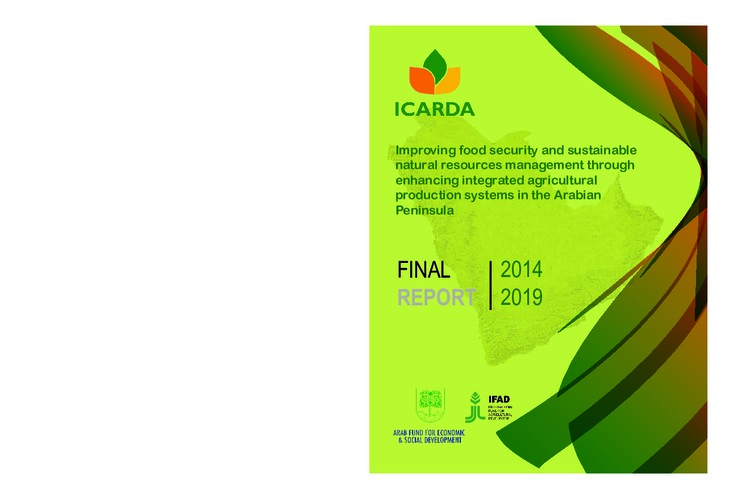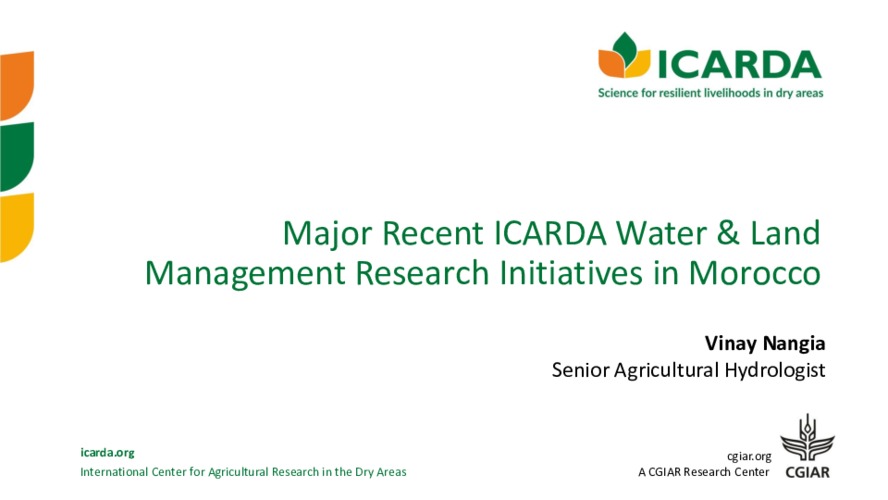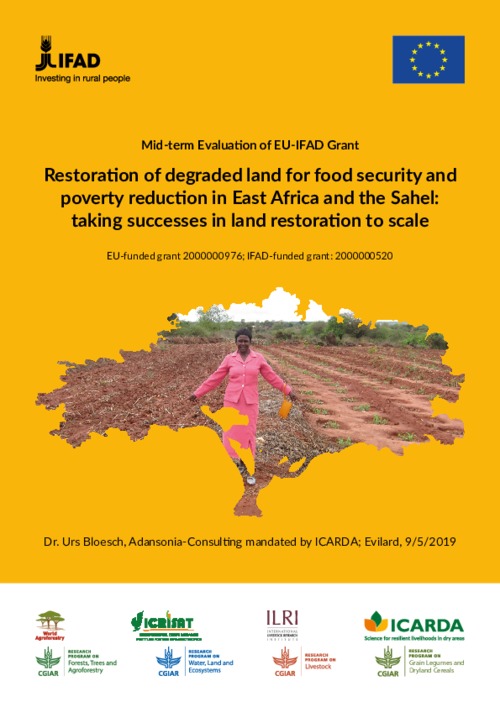Location
The International Center for Agricultural Research in the Dry Areas (ICARDA) was established in 1977. It is one of 15 such centers supported by the CGIAR. ICARDA’s founding mandate to promote agricultural development in the dry areas of developing countries remains highly relevant today.
ICARDA works with a tight focus on the problem-solving needs of resource-poor farmers, achieving this through the in-field delivery of its research outputs. Although global food production has increased by 20 per cent in the past decade, food insecurity and poverty remain widespread, while the natural resource base continues to decline.
International research centers such as ICARDA, which have helped drive previous improvements, continue to deliver new technologies to support sustainable growth in agriculture, and crucially, to work with a wide range of partners to accelerate the dissemination of these technologies.
ICARDA’s biggest strength is its staff – 600 highly skilled men and women from 32 countries. Our research and training activities cover crop improvement, water and land management, integrated crop-livestock-rangeland management, and climate change adaptation.
Other interventions include:
- Water harvesting - supplemental irrigation and water-saving irrigation techniques
- Conservation agriculture methods to reduce production costs and improve sustainability
- Diversification of production systems to high-value crops – horticulture, herbal and medicinal plants
- Integrated crop/rangeland/livestock production systems including non-traditional sources of livestock feed
- Empowerment of rural women – support and training for value-added products.
The ICARDA genebank holds over 135,000 accessions from over 110 countries: traditional varieties, improved germplasm, and a unique set of wild crop relatives. These include wheat, barley, oats and other cereals; food legumes such as faba bean, chickpea, lentil and field pea; forage crops, rangeland plants, and wild relatives of each of these species.
ICARDA’s research portfolio is part of a long-term strategic plan covering 2007 to 2016, focused on improving productivity, incomes and livelihoods among resource-poor households.
The strategy combines continuity with change – addressing current problems while expanding the focus to emerging challenges such as climate change and desertification.
We work closely with national agricultural research systems and government ministries. Over the years the Center has built a network of strong partnerships with national, regional and international institutions, universities, non-governmental organizations and ministries in the developing world and in industrialized countries with advanced research institutes.
THE ‘DRY AREAS’
Research and training activities cover the non-tropical dry areas globally, using West Asia, North Africa, Central Asia and the Caucasus as research platforms to develop, test, and scale-out new innovations and policy options.
Dry areas cover 41 per cent of the world’s land area and are home to one-third of the global population. About 16 per cent of this population lives in chronic poverty, particularly in marginal rainfed areas. The dry areas are challenged by rapid population growth, frequent droughts, high climatic variability, land degradation and desertification, and widespread poverty. The complex of relationships between these challenges has created a "Poverty Trap."
Members:
Resources
Displaying 31 - 35 of 431Improving food security and sustainable natural resources management through enhancing integrated agricultural production systems in the Arabian Peninsula 2014-2019
This publication demonstrates the scope of research and human resources development
over the period between January 2014 and March 2019. It highlights some of the
accomplishments as the result of the collaborative efforts among the seven countries of
the Arabian Peninsula, project donors, and ICARDA-APRP.
Major Recent ICARDA Water & Land Management Research Initiatives in Morocco
Presentation on Major Recent ICARDA Water & Land Management Research Initiatives in Morocco.
Chickpea: an alternative crop for rainfed agriculture in Uzbekistan
In Uzbekistan, where agriculture is an important source of income for rural population, land degradation is a major challenge for the environment and the food security. The traditional focus of rainfed agriculture on production of grains with intensive mechanical soil tillage leads to depletion and loss of topsoil. Growing legume crops like chickpeas, can improve the soils.
Soil Water Dynamics Affected by Micro Rainwater Harvesting Structures in Jordanian Badia Restoration Context
The objective of this study was to model and analyze the influence Vallerani rainwater
harvesting (RWH) structures have on the soil moisture dynamics in the Jordanian Badia
and to test viability of these structures when influenced by climate change. HYDRUS-2D
was used for the modelling. A three-month fieldwork was performed to set up and
calibrate the model. The results show that most of the soil moisture is located
underneath the furrow of the Vallerani RWH structures. The impact on water availability
Mid-term Evaluation Final Report: Restoration of degraded land for food security and poverty reduction in East Africa and the Sahel: taking successes in land restoration to scale
The final report of Mid-term evaluation of EU-IFAD Grant project "Restoration of degraded land for food security and poverty reduction in East Africa and the Sahel: taking successes in land restoration to scale".







